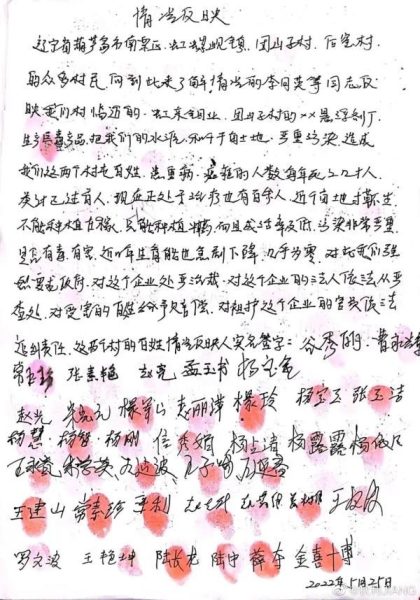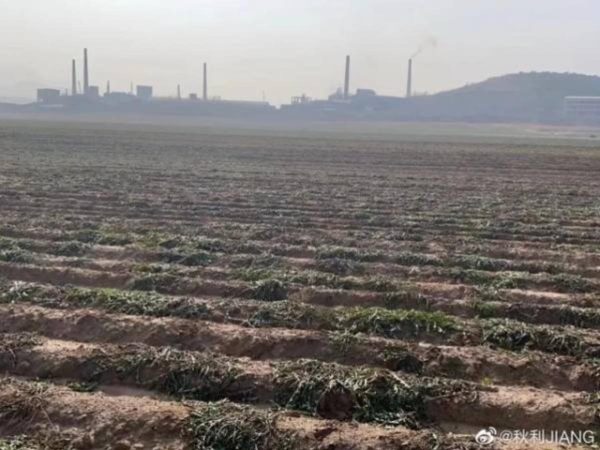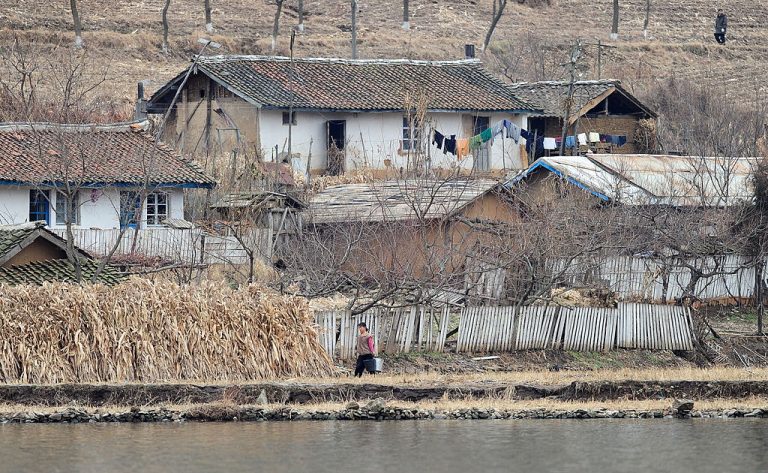Over 80 people living near the city of Huludao, located in China’s Liaoning Province, have come forward to claim they have fallen ill from carcinogens present in the region’s air and water.
In an unusual move, the afflicted residents used their real names to sign a mass petition urging the government to address the region’s chemical industry — which they believe is the driving force behind the rising levels of toxicity — resulting in droves of people falling ill. In China, publicly speaking out against the government, or government-mandated policies, can result in imprisonment, arrest, or worse.

According to the villagers, the pollution has affected a community of over 1,000 people, and has caused nearly 1,000 mu (approximately 160 acres) of land to become unusable as a result of harmful chemicals released into the air and soil.
MORE ON ENVIRONMENTAL CRISES IN CHINA:
- China’s Epidemic Prevention Staff Getting Heatstroke From Sweltering Temperatures as Casualties Rise
- 900 Million People in China Affected by Heat, Power Cuts as Sweltering Temperatures Break 111 Degrees
- Scorching Heat Waves Sweep Through 84 Cities in China, Killing Multiple People and Triggering Govt. Power Cuts
- Shanghai Man Left Homeless After Being Confined to COVID Quarantine Camp for 42 Days
Number of cancer-stricken villagers growing
The residents wrote in the petition that a disproportionate number of people in Daochi village were being diagnosed with different types of cancer — such as lung, esophageal, and breast cancers — and that the number of deaths resulting from the disease was also growing.

“Cancer brings a heavy economic burden to the families of the villagers — most of whom rely on farming to get by. Many of these families are now totally bankrupt because they have to spend so much money paying for cancer treatments,” the Chinese edition of Vision Times reported.
Success
You are now signed up for our newsletter
Success
Check your email to complete sign up
In addition to air pollution, villagers have said they are also concerned about “soil and groundwater pollution.” Several farmers described how over half of their livestock had died after consuming grass that had been irrigated with contaminated waters. Farmers also described how the water they used to drink and cook was pumped from underground wells and had turned a rancid green color — forcing them to travel several miles to find other water sources.
According to a bulletin posted by the “Huludao City Environmental Quality,” the water quality in Daochi village has reached “dangerous levels” for several years in a row. The bulletin noted that waters flowing from the nearby Wuli and Lianshan rivers into the Daochi village had exceeded class V, the worst possible level.
The nearby villages of Tuanshanzhi, Hongluoxian, and Nanpiao district have also reported being afflicted by the polluted waters.
To exasperate matters, a recent shortage of fertilizer and seeds has compounded an already struggling farming sector in the area. When asked how they were coping with the seed shortage and worsening pollution levels, a local officer reportedly said, “It is a problem left over from history,” referencing when millions of people perished during the Great Chinese Famine in the late 1950s to early 60s. The tragedy stemmed from the Mao government’s inefficient distribution of food, forced overfarming and subpar agricultural techniques.
Factories free-dumping toxic chemicals
Sun Jian, a resident from Huladao’s Longgang district, described how he noticed an odor reminiscent of “sweet almonds” lingering in the city’s air beginning this year. After breathing the polluted air for extended periods of time, Sun said he would often experience congestion and a tingling numbness in his lips.
Another resident, who only gave the surname Li, said a worsening pungent smell felt like “hot air stuck in your mouth and throat,” and described how he lives less than half a mile away from a chemical plant. Li said he believed most of the toxic smells came from the vicinity of Beigang Industrial Park — an economic development zone in the Longgang district, and said the smell had worsened in recent months.
A video widely shared on Chinese social media showed several netizens expressing concern over their city’s air quality and showed that some of the factories were dumping chemicals directly into the city’s sewers.
Yang Tianzi contributed to this report.














